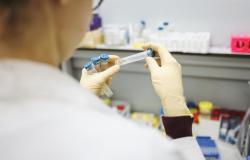
International mechanisms failed to achieve equitable distribution of COVID-19 vaccines—prolonging and deepening the pandemic. To understand why, we conduct process tracing of the first year of international policymaking on vaccine equity. We find that, in the absence of a single venue for global negotiation, two competing law and policy paradigms emerged. One focused on demand and voluntary action by states and firms, while the alternative focused on opening knowledge and expanding production through national and international law. While these could have been complementary, power inequalities between key actors kept the second paradigm from gaining traction on the global agenda. The failure of the prevailing policy paradigm to secure equity is explained, not by unforeseen technical and financing challenges as some suggest, but by a fundamental misalignment with the political environment. While norm entrepreneurs encouraged sharing, political incentives pushed governments towards securing and hoarding doses. Firms responded to the latter. Mechanisms like COVAX proved incapable of countering these predictable international and domestic political forces. Earlier funding would not likely have changed the behaviour of states or firms in the absence of legal commitment. Barring significant geopolitical changes, a shift to include open/supply-focused policies will be necessary to achieve equity in future pandemics.
Policy Implications
- States currently negotiating new pandemic agreements and financing mechanisms should avoid replicating a policy approach to equity that proved incapable of overcoming political challenges. Solutions focused on financing alone will not address the core problems encountered by international vaccine allocation efforts.
- An international agreement that commits states to share technology and support distributed manufacturing, rather than a focus on sharing doses, could address the predictable domestic and international political forces during a pandemic that undermine equitable access among countries.
- States should agree on an authoritative venue for negotiating equitable distribution policies that include representation of all states (perhaps under the World Health Assembly or UNGA's authority) to counter power dynamics within global health that undermined effective policymaking.
- Global health institutions designing pandemic response policies should conduct rigorous political analysis to understand and articulate real-world feasibility of polices that must be implemented in a non-ideal context.
Photo by Polina Tankilevitch